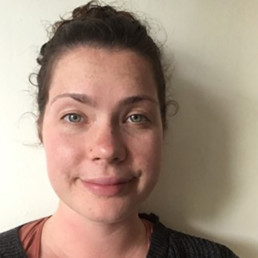
Written by Molly Burbridge
Molly is a teacher based in Greater Manchester, she founded AC in September 2020. She has a BA from Manchester University in American Studies.
Why is the national curriculum so limiting?
The national curriculum determines what is taught in our schools and colleges. It not only establishes who deserves to be celebrated in our country’s classrooms but also which students are represented. The content of our curriculum, the privileging of some forms of knowledge and aspects of lived experience over others and even pedagogical practices themselves serve to prioritise some voices and marginalise or silence others.
Even though educational establishments are required to abide by the Equality Act of 2010 our national curriculum does not reflect the nine protected characteristics equally. There is no requirement to learn about how institutionalised racism impacts our society; most authors of GCSE English texts are White heterosexual cisgender men; there is little scope for the celebration of the diverse array of cultures and identities that exist in our society. Even in PSHE, a subject that can be considered to have the most freedom to explore topics relating to the nine protected characteristics, is curtailed by DfE guidance limiting the external visitors that can support the delivery of a PSHE curriculum to disallow those, ‘promoting divisive or victim narratives that are harmful to British society’ (https://www.gov.uk/guidance/plan-your-relationships-sex-and-health-curriculum#using-external-agencies). This has been seen as an attempt to limit educators from teaching about activist groups such as Black Lives Matter and Extinction Rebellion (https://www.theguardian.com/education/2020/dec/15/education-department-to-review-schools-guidance-on-anti-capitalist-groups?__twitter_impression=true). It would be an impossible task to effectively teach about the nine protected characteristics of the Equality Act of 2010 without discussing the actions taken by marginalised groups to fight for equality however the DfE seem to be trying to prevent this.
Why does a representative curriculum matter?
Lack of representation or misrepresentation prevents society from progressing. When harmful, inaccurate or ignorant portrayals of groups of people exist in the media or cultural industries it leads to discrimination and harassment. If students don’t see themselves represented in topics they learn at school whether that be due to their race, gender identity, sexual orientation or disability then it becomes a barrier to achieving a sense of equality in schools. A lack of representation can also perpetuate existing inequalities that exist in society. Pupils who belong to groups that hold power in society are not given an opportunity to locate themselves within this position of power in society and are therefore not encouraged to consider how they benefit from it and what they can do to promote equality.
How we want to make a change!
Here at Alternative Curriculum, we want to widen the educational conversation and deepen an understanding of many subjects that are often airbrushed out of our national curriculum. We create free online resources that can be used by teachers in their classrooms, parents/carers as learning tools at home or young people as an opportunity to widen their cultural capital. Our aim is to amplify diverse voices and give young people the chance to learn about the varied histories, cultures and communities that have contributed to society. Our lessons focus on minority groups and those whose histories and cultures are not as thoroughly covered in the mainstream curriculum, with lessons on various topics within areas of history, science, media, literature, cultural studies and more. Example lessons so far include:
- ‘Pride’- KS1: https://www.alternativecurriculum.org/pride-3/
- ‘Racism, Inequality, Cultural Pride and Revolutionaries’- KS3: https://www.alternativecurriculum.org/racism-inequality-cultural-pride-revolutionaries/
- ‘The World’s Wife’- KS4: https://www.alternativecurriculum.org/the-worlds-wife/
- ‘Irish History’- KS5: https://www.alternativecurriculum.org/irish-history/
We have even started creating adult resources as it’s important that we continue to educate ourselves and continue the conversation around anti-discrimination and equality. Here are some examples of our adult resources:
- Disability Rights in the UK: https://www.alternativecurriculum.org/disability-rights-in-the-uk-2/
- Kill the Bill: https://www.alternativecurriculum.org/kill-the-bill/
As conversations around the creation of a diverse and representative curriculum continue we hope that it is prioritised in classrooms across the country. Until then we will keep creating resources that amplify and celebrate unheard voices and change the narrative or our national curriculum.

